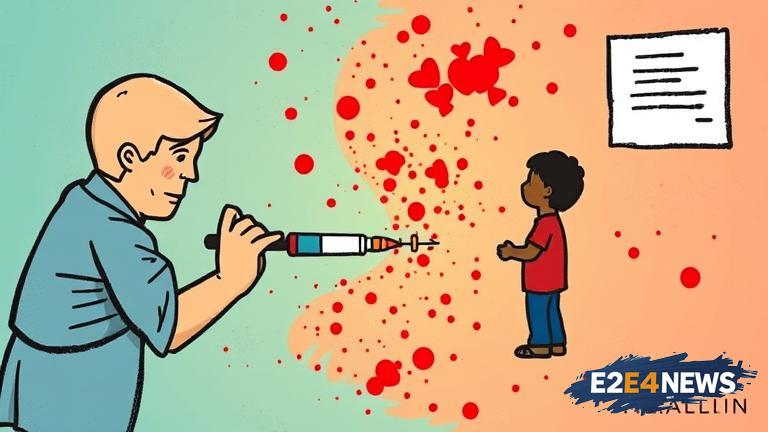The Department of Health Services (DHS) has issued a warning regarding a recent surge in measles cases, prompting concerns about the potential for a widespread outbreak. Measles is a highly contagious and potentially life-threatening disease that can be prevented through vaccination. The DHS is urging parents to ensure their children are up-to-date on their measles, mumps, and rubella (MMR) vaccine to protect them from the disease. According to health officials, the majority of measles cases have occurred in children who have not been vaccinated. The measles virus can spread quickly through the air when an infected person coughs or sneezes, and it can also be transmitted through contact with contaminated surfaces. Symptoms of measles include fever, cough, runny nose, and a characteristic rash. If left untreated, measles can lead to serious complications, such as pneumonia, encephalitis, and even death. The DHS is working closely with local health departments to monitor the situation and provide guidance on vaccination and prevention. Health officials are emphasizing the importance of herd immunity, which occurs when a sufficient percentage of a population is immunized, making it difficult for the disease to spread. The Centers for Disease Control and Prevention (CDC) recommends that children receive two doses of the MMR vaccine, with the first dose given at 12-15 months of age and the second dose at 4-6 years of age. Adults who have not been vaccinated or have not had measles in the past may also need to receive the vaccine. The DHS is encouraging parents to check their children’s vaccination records and schedule an appointment with their healthcare provider if necessary. Additionally, the department is providing resources and support to healthcare providers to help them identify and respond to potential measles cases. The measles outbreak has raised concerns about the potential for other vaccine-preventable diseases to spread, highlighting the importance of staying up-to-date on all recommended vaccinations. The DHS is working to educate the public about the risks of measles and the benefits of vaccination, and is urging everyone to take steps to protect themselves and their loved ones. As the situation continues to evolve, the department will provide updates and guidance to help prevent the spread of the disease. In the meantime, parents are advised to remain vigilant and take proactive steps to ensure their children are protected against measles. The measles outbreak serves as a reminder of the importance of vaccination in preventing the spread of infectious diseases. By working together, we can help prevent the spread of measles and keep our communities safe. The DHS is committed to providing the necessary resources and support to help prevent the spread of the disease and protect the health and well-being of all individuals. The department is urging everyone to take the necessary precautions to prevent the spread of measles, including getting vaccinated, practicing good hygiene, and staying home when sick. By taking these steps, we can help prevent the spread of the disease and keep our communities healthy. The measles outbreak has also highlighted the importance of international cooperation in preventing the spread of infectious diseases. The DHS is working closely with international health organizations to monitor the situation and share best practices for preventing the spread of the disease. As the situation continues to evolve, the department will provide updates and guidance to help prevent the spread of the disease. The measles outbreak is a reminder that infectious diseases can spread quickly and easily, and that vaccination is a critical tool in preventing the spread of these diseases. By staying up-to-date on all recommended vaccinations, we can help protect ourselves and our loved ones from the spread of infectious diseases.





